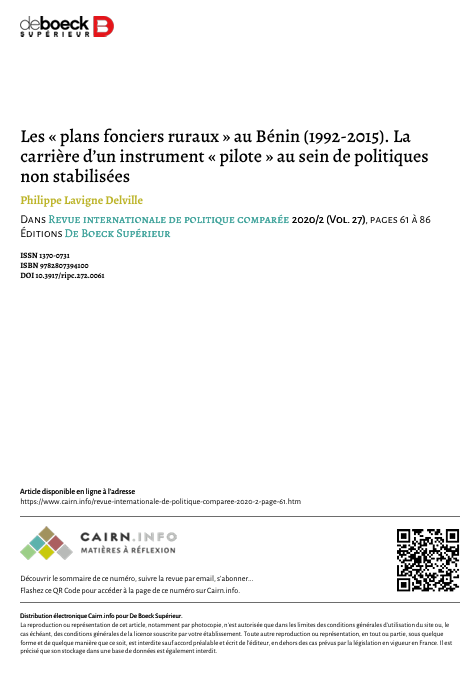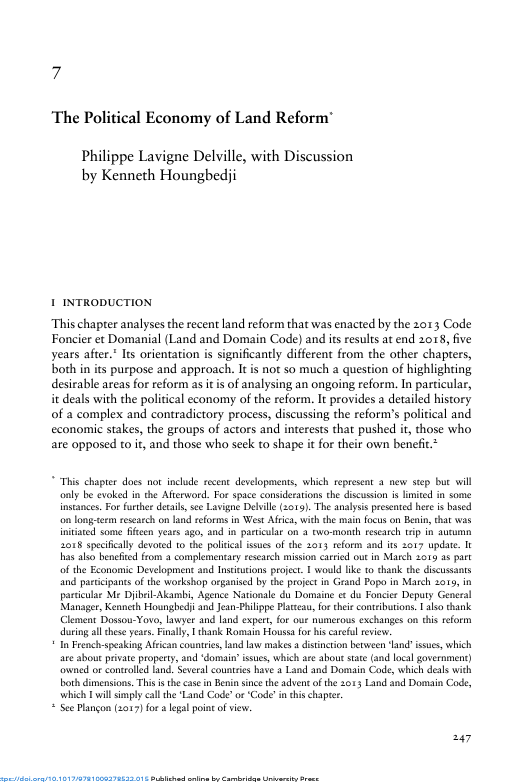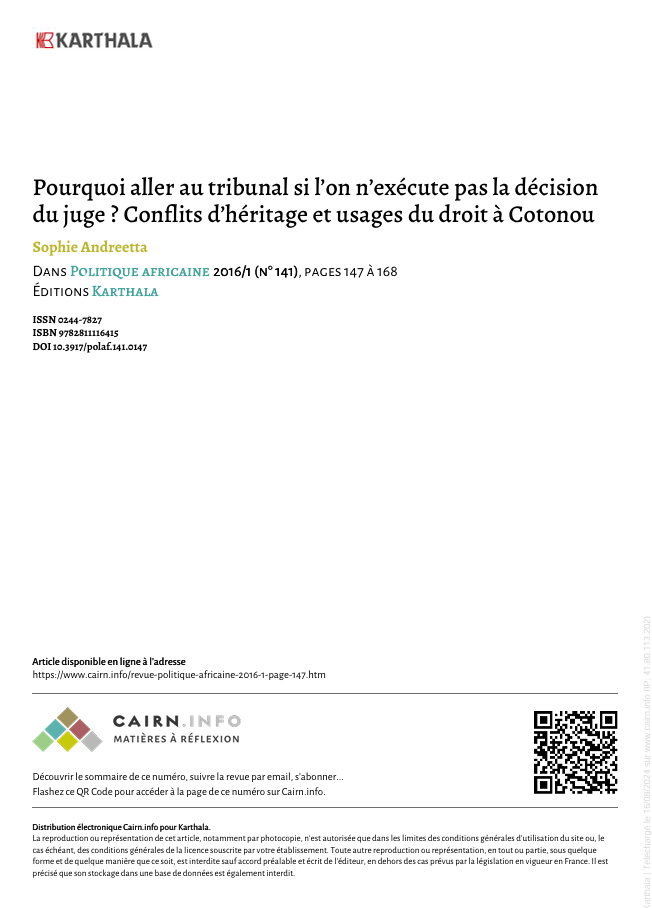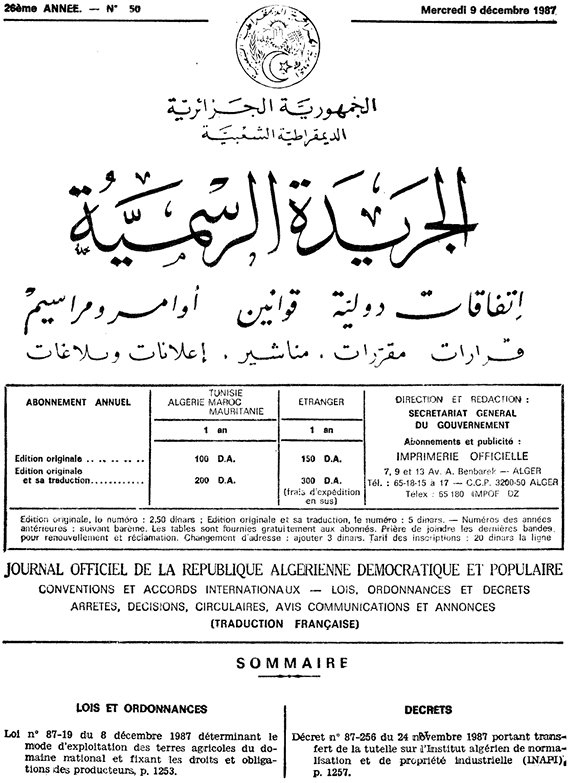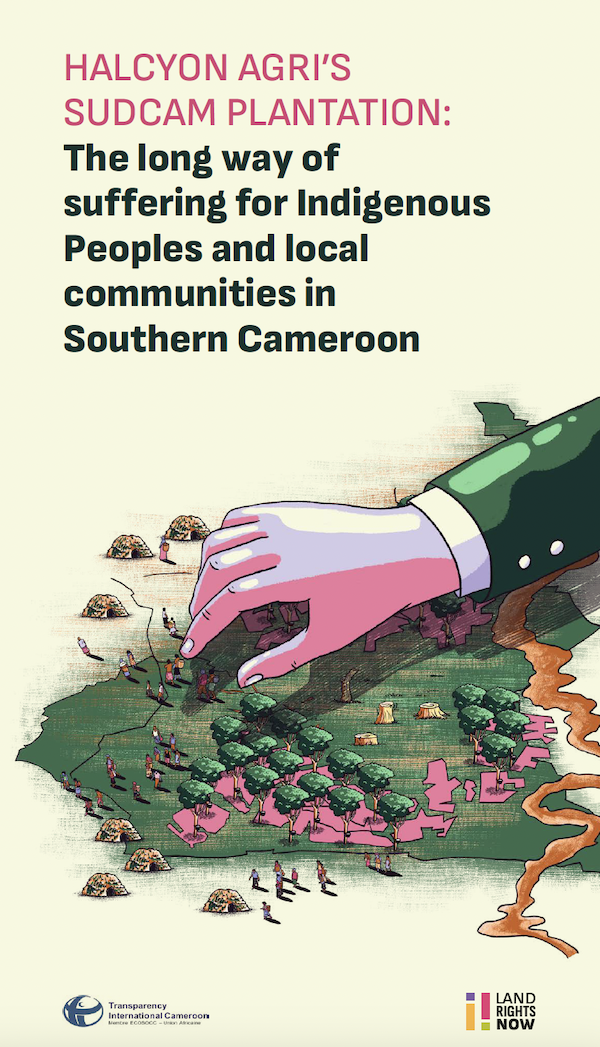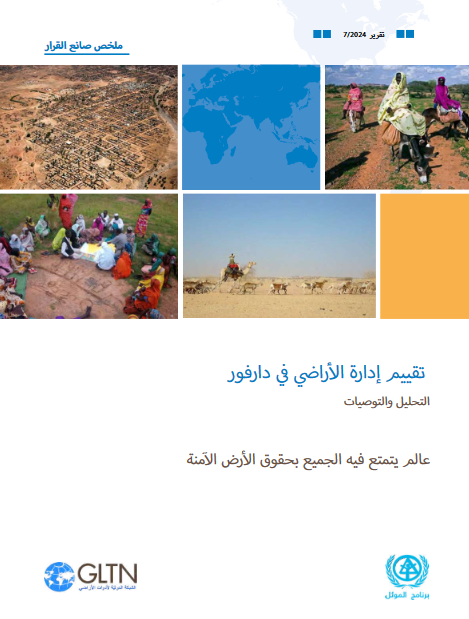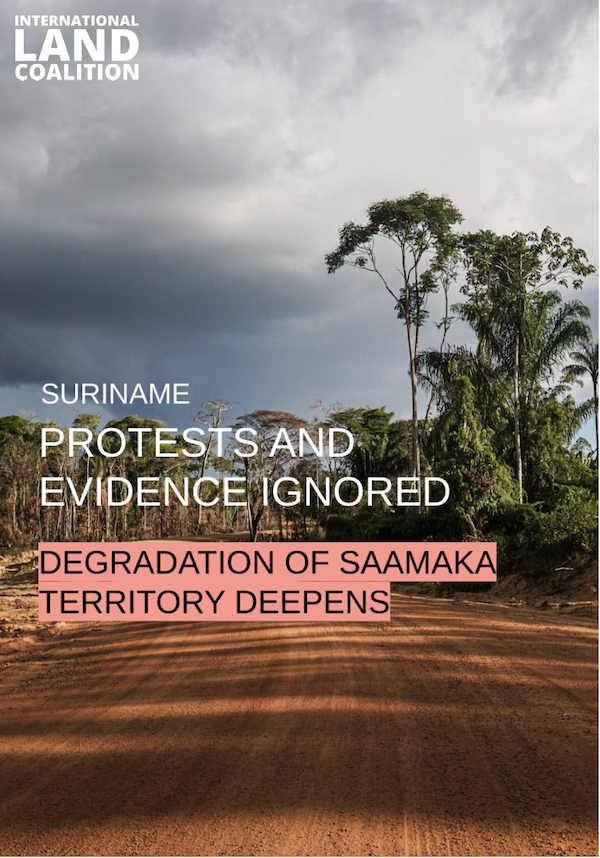Les « plans fonciers ruraux » au Bénin (1992-2015). La carrière d’un instrument « pilote » au sein de politiques non stabilisées
Le Plan foncier rural (PFR) est un des instruments mis au point dans le cadre de l’aide internationale pour permettre la formalisation des droits fonciers coutumiers en Afrique, conformément aux prescriptions internationales en vigueur depuis les années 1980-90 1. Il consiste en un levé systématique, parcelle par parcelle, d’un territoire villageois, en couplant une enquête sur les droits (individuels ou collectifs) détenus (composante sociofoncière) et le levé des limites de la parcelle (composante topographique).

